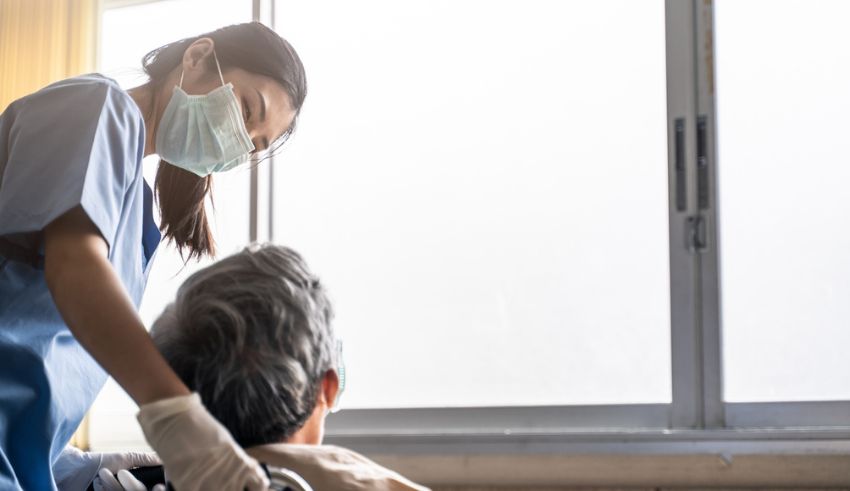

(C) The Filipino Times
In the turbulent landscape of the Israel-Gaza conflict, where headlines narrate tales of violence and chaos, an extraordinary story unfolds – one that often remains untold. It is a story of human resilience and heroism, where migrant caregivers from Southeast Asia become unsung heroes, silently shouldering their responsibilities amidst the mayhem.
Irene Repuela Torres, a caregiver, found herself in a heart-pounding situation with just 15 seconds to act. The alarm blared at dawn, and her immediate duty was to usher the aged Israeli-American couple she cared for into the bomb shelter. Her beloved employer, whom she affectionately referred to as her “lola,” the Filipino word for grandmother, needed to use the bathroom first, despite the imminent danger.
As Torres waited for her lola, she caught a chilling glimpse of armed men on a motorcycle, brandishing assault rifles. In an instant, gunshots shattered the serenity, and Torres hurriedly retreated into the shelter, her heart pounding with fear. The assailants, undeterred, soon began to batter at the door. In the face of imminent danger, Torres summoned every ounce of her courage, darting from the safe room, pulling her lola from the bathroom, and slamming the shelter’s door shut. They clung to each other, seeking refuge from the gunfire that echoed ominously outside.
Amid the heart-wrenching stories of Israeli communities under siege and innocent people taken hostage by the attackers, the vulnerability of Israel’s tens of thousands of migrant workers, many hailing from Southeast Asia, often goes unnoticed. The conflict, in all its brutality, has exposed the harsh reality faced by these foreign workers.
It’s a stark truth that transcends borders. At least two Filipinos have lost their lives in southern Israel, and 21 Thai workers have been killed, with another 14 taken hostage. The agricultural industry, notorious for its hazardous conditions and exploitation of a vulnerable migrant workforce, finds its perils amplified when set against the backdrop of conflict.
David Welsh, the Thailand country director of the international labor rights organization Solidarity Center, acknowledges that labor rights are already compromised within the global agricultural sector. These conditions, he contends, are further exacerbated in conflict zones.
In the midst of the turmoil, Surachai Seehajumpa, a Thai national, faces the daunting decision of whether to stay or return home. Israel’s agricultural sector offers him a monthly income approximately five times higher than Thailand’s minimum wage, providing him with a chance to pay off debts and save for a better future. He and his colleagues can hear the distant echoes of explosions as they continue their work, undeterred by the escalating violence. Yet, the unpredictability of the situation keeps them vigilant and on edge, with one ear always tuned to the news for signs of worsening conflict that might necessitate their return home.
The situation raises important questions about the precarious balance between financial opportunity and personal safety. The intricate protections for migrant workers in Israel are often contingent upon their employment contracts, relationships with their employers, and government initiatives. Agnes Hoffman, a Filipino social worker and volunteer with extensive experience in Israel, underscores the urgency of a longstanding proposal from community leaders. She advocates for the Philippine government to establish a permanent shelter for temporary workers and provide much-needed psychological aid in the workers’ native languages.
The dedication and determination of these migrant caregivers come to the fore in times of adversity. Sally Macadini, a 38-year-old Filipino caregiver, managed to get her elderly employer into the safe room just as the attack occurred. While fear gripped her heart, she continued to monitor the news in the safe room and relay updates to fellow caregivers via chat.
However, not all tales end in relief. Macadini discovered that a colleague, living only a few houses away, had been unable to save her employer, who tragically lost his life to the violence.
The conflict poses a dilemma – should these caregivers leave Israel in search of safety or continue to fulfill their responsibilities and obligations to their Israeli families and loved ones waiting back in their home countries? The decision is an agonizing one, for their journey back home is fraught with uncertainties. It’s not just a question of livelihood; it’s a matter of the heart and soul, for these workers straddle two worlds, each demanding their loyalty and care.
As the conflict rages on and the world’s attention remains fixed on violence and geopolitical complexities, these stories of heroism and resilience should remind us of the human spirit’s indomitable strength. In the face of uncertainty, these caregivers embody the true meaning of selflessness and sacrifice. Their unwavering dedication to their responsibilities and the people they care for is a testament to the extraordinary courage that emerges when humanity is tested in the crucible of conflict.
OpenAI updated ChatGPT-4o to include its best text-to-image tools so free users can generate Studio Ghibli artwork by giving basic…
The stepping down of Piyush Gupta from the post of CEO of DBS Bank came after 15 years of leading…
The Delhi Directorate of Education releases 2025-26 marks for year-end tests in school levels 6 through 11. Online test data…
Singapore will further cement its status as an important basketball destination when it hosts three FIBA 3x3 events in 2026…
Jewel Section E, directed by Theodore Boborol and starring Ashtine Olviga as Jay-Jay Mariano, Andres Muhlach as Mark Keifer Watson,…
Cebu Pacific celebrates the delivery of its very first aircraft for 2025, the 459-seat Airbus A330neo, delivered at Ninoy Aquino…
This website uses cookies.
Read More